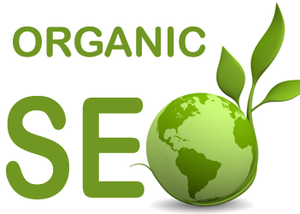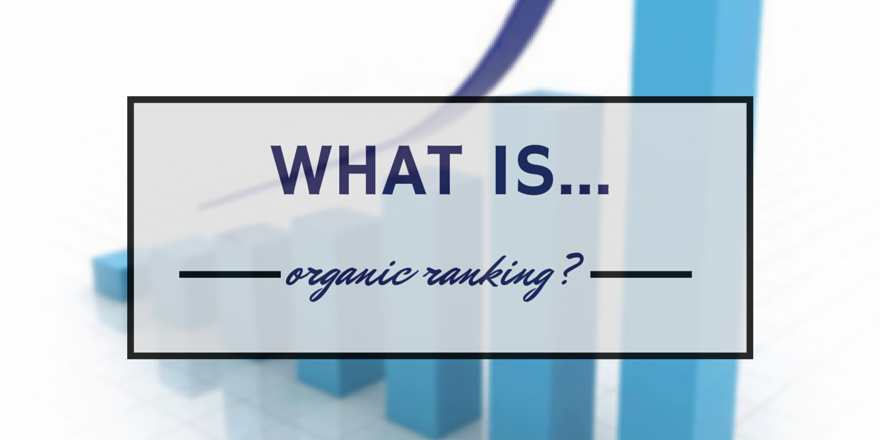
Like organic food, organic ranking is healthy. Just think of it like organic food for your site rankings.
If you’re just getting started with the internet marketing aspect of your business, you have probably heard a variety of unfamiliar terms already, from “SEO” to “analytics” to “content marketing”, and others. The phrase “internet marketing” itself works as sort of an umbrella term for a number of related topics. That’s because internet marketing is a complicated subject, and as such, there are a lot of areas that need to be explored when planning a marketing strategy. So it makes sense that there are some industry-specific terms that you’ll have to learn if you want to improve your knowledge.
But perhaps one of the stranger terms you’ll come across when you’re just starting out is “organic ranking”. While it sounds a little bit like a weird judging system for the produce at a farmer’s market, it’s actually a lot simpler than that. Let’s talk a bit about what organic ranking is and how it pertains to your company’s internet marketing strategy.
What is Organic Ranking?
Simply put, organic ranking is the way your site shows up in search results when someone types in a term. For example, if you sell cozies for mugs and someone types in “cheap mug cozies”, you’d want your site to pop up. If it does, that means it’s ranking organically for the keyphrase “cheap mug cozies.”
Ideally, you want to attain organic ranking for highly-trafficked keywords and keyphrases. After all, the more people who search for a term related to your business, the more traffic you’ll get. But unfortunately, this also means that there is going to be a lot of competition for these keyphrases. And, as you know, the search engine only returns a limited number of results, and most people aren’t going to click past the first page. So you really have a limited section in which to effectively rank.
How do I Improve my Organic Ranking?
First of all, what is organic ranking to you? Is it worth investing in—i.e., with an advertising budget? Is it something you’d like to try to do on your own by spending as little money as possible? Or is it something you’d simply like to understand better so that you can gauge how your site is doing in comparison to your competitors?
All of these are great reasons to learn a bit more about how to improve your organic ranking. This article won’t go into too much depth about this topic, but we’ll provide three solid examples of proven ways to help boost your organic rankings.
- Define a list of keywords. If you don’t know the address of your destination, you don’t have a very good chance of getting there. It works the same way with organic ranking. You need to know what people are looking for before you can create a plan for them to find you. Take a look at the keywords your industry. Which are being searched for often? When you search for your competition, what do you type in to get their page to pop up? When you check Google trends, are your keywords and keyphrases showing up? Spend some time figuring this out. You can use Google Keyword Planner to do some research as well as Google Trends.
2. Understand the behavior of users. Without going into specifics about user experience and all the intricacies of demographics and gender, you should take the time to consider how your customers will use search engines. Are they going to be looking for your address or storefront? Make sure that you have your business on Google Places so they can find you on a map. If you have a Yelp page, make sure it’s filled out completely. Search engine users want results to be quick and easy to find, so be sure to help them out as much as you can. It’s also interesting to note that people click on organic search results 94% of the time—as opposed to 6% of the time for paid ads. So you’ll want to make sure you’re coming up organically to net the most clicks.
3. Write your own content. Who knows your business better than you do? Nobody. You should update your site regularly and provide visitors with fresh content. Not only does this give them an incentive to return and see what’s new, it also tells the search engines to come back and look at your page more often. Over time, this will help your organic ranking. Use your keywords and keyphrases in your articles. And if you’re concerned about your writing skills, you can always send ideas to a qualified writer, and they can craft a post for you.
What is organic ranking going to do for you?
It will help your site get found in a sea of competitors. It’s important to remember that organic ranking takes time and effort. You can choose to learn more about it and tackle it head on, or you can always hire professionals to assist you.
At Internet Local Listings, we’re proud to offer services to get your business ranking organically. It still won’t happen overnight (we’re not really wizards, though we pretend to be sometimes), but we can get you ranking for at least 2 keywords—sometimes more—in 60 days or less, or you don’t pay us until you see those results you want. Visit us or fill out a contact form to find out more. No matter what you decide to do, remember one thing: Successful organic ranking means you will be found by your customers—and failing to rank organically means you lose out to competitors. In a fast-paced, results-driven world, you definitely want to be the former.



Comments 0
Pingback: Back to Basics #7: Website Rank | Internet Local Listings